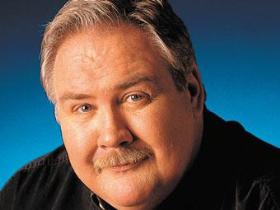Lecture title: “Learn History Now, So You Won’t Have To During The War: How Understanding History Helps us in the Global Present”
An award-winning Canadian journalist whose international reporting has taken him to more than 60 countries, some of which no longer exist and others he can’t believe still do exist, will deliver the annual history lecture at St. Thomas University.
Rick MacInnes-Rae believes that we should “Learn History Now, So You Won’t Have To During The War: How Understanding History Helps us in the Global Present.” The lecture will take place Tuesday, Oct. 16 at 7 pm at the Ted Daigle Auditorium in Edmund Casey Hall.
“In the lecture, I will touch on salmon (literally) and shellfire (literally) and the need to recognise the sullen blackhearts who cherry-pick history for their own base advantage,” said MacInnes-Rae, recently appointed CBC’s World Affairs Correspondent.
“MacInnes-Rae’s work in journalism embodies some of the diverse perspectives from everyday people all around the world,” said History Professor Brad Cross.
“As a seasoned foreign and war correspondent, he has witnessed first-hand some of the most compelling transformations of our times and grounded them in the context of local and global history. Those who attend MacInnis-Rae’s talk will get a great chance to see how our unique World History programme can help them understand present-day global issues.”
MacInnes-Rae was recruited by the CBC while still a student and he formally joined the corporation in 1977, after graduating with a journalism degree from Ryerson Polytechnical University. He then worked in Newfoundland, New Brunswick and Toronto before joining National Radio News. In 1984, he became a national reporter which included secondments to the Washington bureau. International assignments followed; the war in El Salvador, Noriega’s fall in Panama, Hurricanes Gilbert and Hugo, the San Francisco earthquake, unrest in Haiti.
In 1992, he won Best Investigative Report from the Canadian Association of Journalists, for a series on the growth of hate groups. He previously shared two medals at the New York Radio Awards. A year later, he was appointed London Correspondent and he was based in London from 1993 to 1999, but more than two solid years of it were spent out-of-country on assignment, much of it in zones of conflict.
For his reports from Lebanon, Iraq and Rwanda, he has won three citations from the Prix Bayeux, an international competition in France recognising war correspondents who “excel under perilous conditions.” Amnesty International also recognised his work in Africa with its radio award in 1997, and again in 1999 for coverage in Kosovo. In 2002 he was a finalist in Canadian Association of Journalists investigative awards for his Dispatches documentary Who Killed Father One-Speed September 5, 2001.
General Event: http://w3.stu.ca/stu/events/events_view.aspx?id=100836

Post a Comment